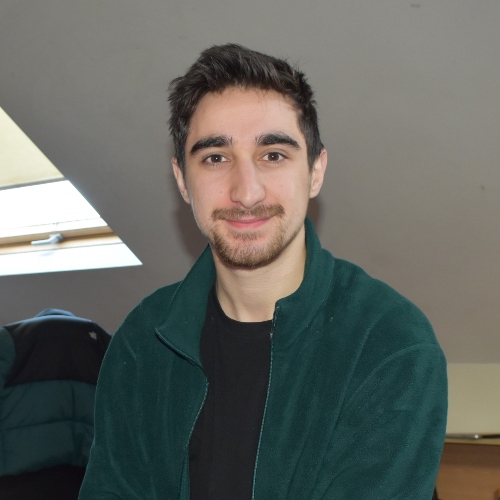19 May 2025
|3 minutes
My journey as an F1 doctor

Starting your journey as an F1 doctor can be both exhilarating and daunting. After many years of rigorous training and countless exams, the transition from medical school to the world of healthcare can present a range of clinical and non-clinical challenges to navigate.
In this blog, current F1, Andreas Stavrinou, shares his insights from his first year as a doctor. From finding accommodation and managing finances to overcoming initial fears and building confidence, he discusses the hurdles he faced and the strategies that helped him succeed.
Despite many years at medical school, it’s normal to feel uneasy about starting work as an F1 doctor. You’re sent off to a new location, given responsibility you’ve never had before and expected to navigate a completely new schedule.
Like many F1 doctors, this was the first time I had a full-time job. This was a challenge, especially as I was also finding new accommodation, managing my finances and trying to maintain a social life.
Having completed medical school finals, I thought I would find myself feeling confident to start working as a doctor. This certainly wasn’t the case. I frequently had a multitude of clinical and non-clinical questions for my peers and seniors, and often felt uneasy asking them.
Once I was able to overcome this, I felt more confident in my clinical approach, was able to support my patients to a high standard and found I was better at navigating the non-clinical side of starting the foundation programme.
It’s easy to feel overwhelmed by the new level of responsibility you’re given, as well as the portfolio requirements you thought would end at university.
Being proactive
Staying proactive is crucial. Once your hospital allocation is confirmed, it’s important to start looking for appropriate accommodation. This will help you complete your move before you start working and stay within a reasonable budget.
There are often lots of other resident doctors and hospital staff looking for accommodation. There might also be people seeking roommates on social media, so it’s be worth keeping an eye out for those too.
When looking for somewhere to live, consider your total income and deduct the total cost including bills and council tax to see if this leaves you with enough money each month. Your commute to work is also important to consider – a long, expensive commute may not be sustainable for you.
The joy of being paid and managing money
After a long, hard first month, I was relieved to have made it to the end – and even more relieved to have been paid!
Following years of student loans, it had become second-nature to be working without the direct benefit of pay at the end of the month. Payday is a time to celebrate and spend some well-earned money. However, it is easy to fall into the trap of overspending.
Consider the total cost of your expenses (including rent, bills and travel) to see what you have left over. Always consider putting a small amount away into a savings account too.
It comes as a relief to discover that some rotations do not require you to work antisocial hours. However, this means that your pay may not be the same for each rotation.
If you know you have a rotation like this during your foundation training, ensure that you consider saving slightly more during better-paying months to support you when you are receiving less.
It can all seem overwhelming at times, but being proactive in arranging your accommodation, bills and finances before starting work can provide a great starting point for your foundation training.
Overall, it’s been reassuring to know that I can access both clinical and non-clinical support and advice, whether that’s from peers, seniors or supervisors.

By Andreas Stavrinou
FY1 Doctor
